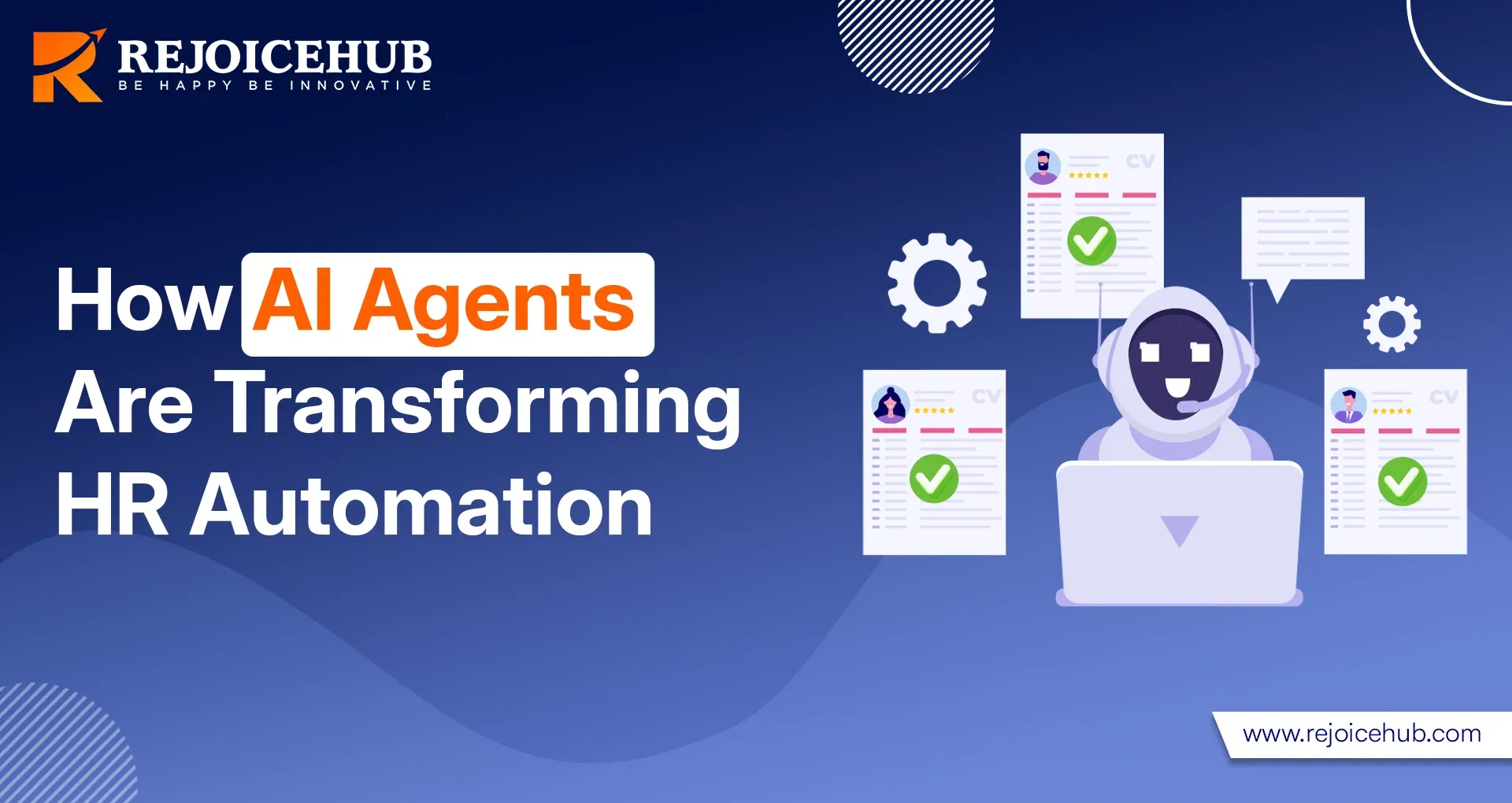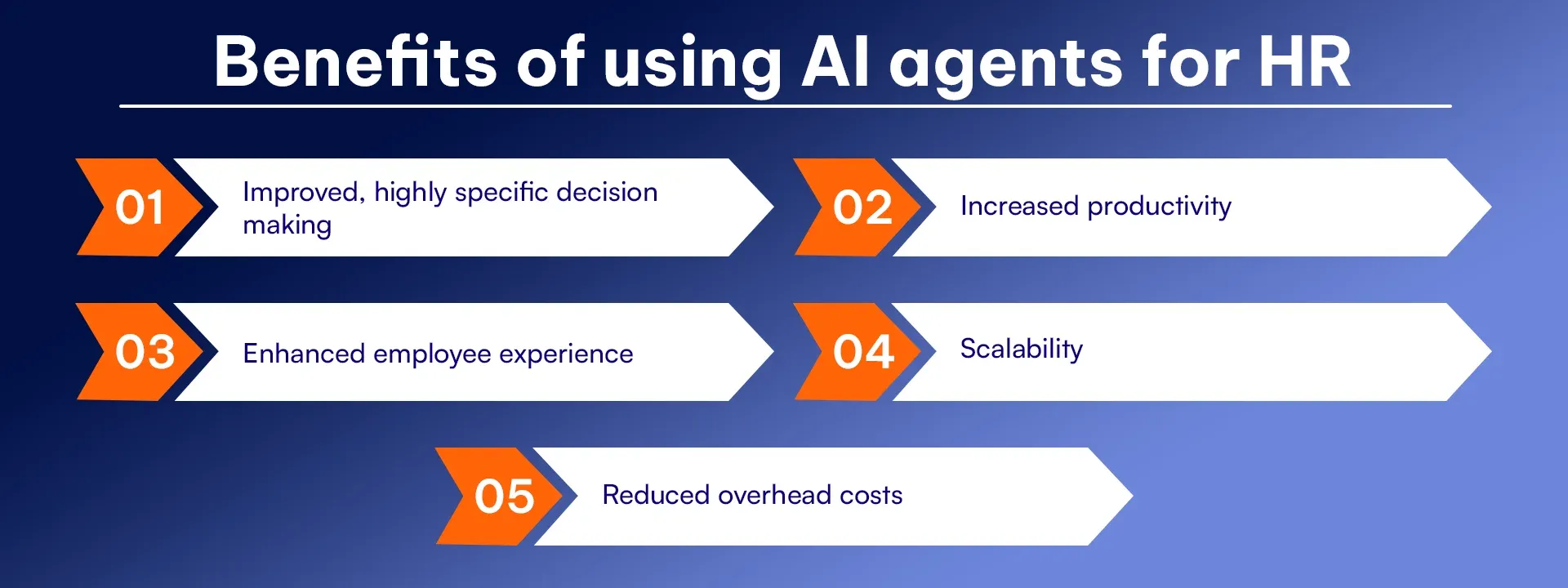
In any industry, the position of HR is the most important, because it is up to HR to decide which employee will be approved for a job in the company; therefore the post of HR is quite hectic and lengthy, in which HR has to thoroughly check all the resumes, emails, and accordingly fix them for the interview.
And this lengthy process is quite stressful not only for HR but also for the job applicants, because they have to wait for several weeks for the interview mail and then for the joining letter.
To reduce the pressure on HR, many AI agents have been released in the market, which automate many operations of HR, making the hiring process very smooth. Let's know in detail how AI agents are impacting HR and hiring.
What Are AI Agents?
AI agents are a type of intelligent program designed to understand natural language and can interpret it according to the user's needs and perform specific actions across digital platforms. It tries to simulate human behaviour by using software to automate workflows based on context.
There are three main types of AI agents
-
Lookup Agents: These agent software try to retrieve specific data like PTO balances or employee IDs.
-
Action Agents: These execute workflows like sending reference letters or processing resignations.
-
Knowledge Base Agents: Currently, most of the knowledge base agents are being used in the industry, where they answer basic FAQs based on the company's internal rules and documentation.
You should not think of AI agents as static chatbots, as they combine natural language understanding (NLU), reasoning and integration very well with the HR platform to deliver real value by integrating with it.
What Are AI Agents for HR?
HR Agents are custom-built tools that automate common human resource processes. It interacts effectively with systems like Workday, BambooHR, or SAP.
- It attempts to answer employee queries based on company documentation.
- It updates personal records in company systems.
- It can easily automate employee requests.
- It delivers documentation based on employee requests, such as reference letters or joining letters.
- It handles core HR operations, such as onboarding and offboarding, quite effectively.
These AI Agentic models serve both employees and HR teams, making operations much smoother, turnarounds faster and hence employee satisfaction is also high.
How Do HR AI Agents Work?
Let's try to understand in detail how AI Agents perform HR operations, just like in a traditional system. If an employee wants to check his PTO balance, he will follow these steps.
- First of all, he will log in to the HR portal.
- After that, navigate to the right section.
- After that, he will read the documentation and spreadsheets, which is a very time-consuming task.
- And it is also possible that he may have to email for clarification.
But the working of modern AI Agents is quite different, let's understand.
- In this, you just have to log in to your portal and type “What’s my PTO balance?”
- As soon as you submit, you will get the exact answer within seconds.
If you understand the working of AI agents, then actually the AI agents connect with HRIS, fetch real-time data and then answer the employee’s query in a conversational tone. And these agents are trained from internal datasets, due to which they have detailed knowledge of all the policies of the company.
Why Are AI Agents for HR Important?
Using an AI agent for HR operations and its position is very important in today's modern industry, and it is also a requirement; let's understand it through examples.
-
Volume Efficiency: If a company like Microsoft Office or Google where 100,000 employees working, more than 800,000 HR queries come every year, which include employee queries, hiring, resignation and when these operations are automated, then approximately 40,000+ hours of time are saved.
-
Speed: If a human takes 3–10 minutes to do a task, then an AI will take only 30 seconds to do the same task.
-
Scalability: AI Agents for HR can handle 10x more queries single-handedly without any external support, which is not possible for Human HR.
-
Consistency: AI agents' answers are very professional and consistent, and they do not make errors or variations in response like humans.
-
Employee Satisfaction: Many experts have noticed in surveys that in companies where their employees' queries are resolved quickly, the employees are more loyal to the company, and there is no confusion between the workflow and management.
Also Read: How Can AI Agents Help Automate Your Workflows in 2026
Benefits of Using AI Agents for HR
We have already learned about the uses of AI Agents for HR, let's learn about their benefits.

1. Improved, Highly Specific Decision-Making
AI agents provide more precise and accurate answers than human staff. Whether it is issuing an employee's verification letter or updating their payroll details, AI agents perform all these tasks effectively with data-backed decisions.
2. Increased Productivity
With AI agents, HR teams do not have to waste time answering repetitive questions because AI handles such routine tasks on its own, allowing HR professionals to focus on their strategy.
3. Enhanced Employee Experience
With AI agents, employees get instant answers and information about services from PTO balances. Apart from this, AI agents can also make the resignation process very quick.
This eliminates the need to send emails to employees repeatedly and, in a way, creates a smooth, user-friendly company environment.
4. Scalability
Whether a company has 100 or 100,000 employees, AI agents can easily handle scalability. And the same AI agents can also handle many tasks without getting tired.
5. Reduced Overhead Costs
When AI agents save company time, reduce manual workload, and prevent errors, they contribute significantly to the company in cost savings.
Best Practices for Using AI Agents in HR
If you want to use AI agents for HR operations or any other position in your company, then let's know about its best practices.

1. Focus on Change Management and Upskilling Employees
Always try to increase the skills and productivity of your employees with AI agents, because automation does not mean that you eliminate them from the company. HR professionals should be trained in AI systems so that they can complete repetitive tasks through AI.
When HR and AI agents work together, it will also increase the training accuracy of AI agents.
2. Combine AI with Human Oversight
Never put all the responsibility on AI agents in a process like hiring, as it can lead to errors and situational issues. Initially, use AI only for your repetitive tasks, and use human staff for sensitive and complex issues. It is very important to have a balance of both for better performance in the company.
3. Redesign the Enterprise Operating Model
AI agents need clean, structured data and integrated systems for effective working. So whenever you integrate AI systems in the company, redesign your workflows and systems so that you can unlock your full potential.
4. Train AI Agents on Relevant Datasets
Always train AI agents according to the company's specific policies, documents, and processes. Because the better the training data, the more effective the working of the AI agent will be.
5. Connect Agentic AI with a Wide Variety of Applications and Data
To get effective results from AI agents, try to integrate them with the company's cross-systems, where they can easily access and manage payroll, benefits, performance tools, and compliance platforms, and if you want, you can even ask AI to execute these processes automatically.
What Is the Future of HR Automation?
The future of HR automation is going to be multi-agent, multi-plugin, and cross-system, and we are already noticing in 2026 that many HR operations are being managed by AI automatically, for example:
-
Onboarding: AI agents extract data from all resumes, CVs at the time of hiring and submit it to the company’s system, after which eligible candidates are shortlisted from that data for interviews.
-
Performance Reviews: AI agents can automatically aggregate data, recommend raises and easily update compensation records.
-
Wellness Programs: IT companies are seeing a lot of burnout, and AI agents can notice this issue through the company’s trends and suggest interventions via wellness platforms.
Conclusion
Many people believe HR has the easiest job, but in reality, a company’s performance largely depends on its employees and hiring the right talent is the core responsibility of HR. This highlights just how crucial HR is to any organization’s success.
Traditionally, HR operations have been time-consuming and manual. However, with the advent of AI agents for HR, managing recruitment, onboarding, and employee data has become significantly more efficient. That’s where RejoiceHub comes in. If you’re a business founder or looking to streamline your HR processes, RejoiceHub can help seamlessly integrate AI agents into your company’s systems saving you both time and operational costs.
As AI agents continue to evolve, it's best to start by automating repetitive HR tasks such as resume screening, interview scheduling, and employee records management. Meanwhile, let your human staff focus on strategic, people-first operations. With RejoiceHub’s AI integration services, you can strike the perfect balance between efficiency and human insight in your HR department.
Using AI agents is not an option today, but it has become important if you have to survive in this competitive and fast market.
Frequently Asked Questions
1. What is the difference between a chatbot and an AI agent in HR?
Chatbot works on a static system that can only give basic responses. But AI agents understand your context and provide real-time data answers and can easily perform complex tasks in company systems.
2. Are AI agents secure for handling employee data?
Yes, when the experienced partner company correctly implements AI agents with proper compliance and encryption protocols, then AI agents can securely access and process HR data.
3. Can small businesses benefit from HR AI agents?
Yes, many small companies are using AI agents to automate their basic HR tasks, making it easier to make small teams more efficient without the need for large HR departments.
4. What are some popular HR tasks AI agents automate?
AI agents can perform easy to complex tasks depending on their training data, but common use cases include PTO balance lookups, employment verification letters, onboarding processes, and policy FAQs.
5. How do I get started with AI agents in HR?
To get started, you first identify repetitive HR tasks in your company, then choose a reliable AI platform to train on your data, and then integrate it into your systems with your existing systems, like Workday or BambooHR.
